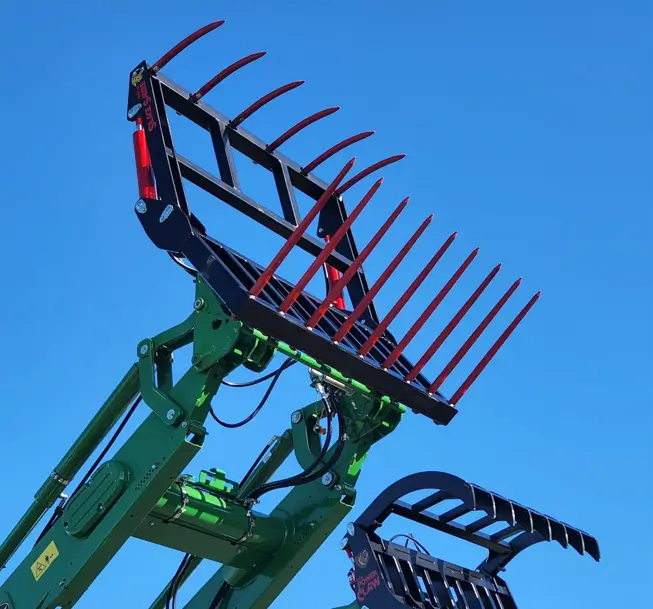Most of us that use forks or rakes of any kind will be able to recall that moment of a bent or broken tine, and we know how it happened, right?
It's not what you want part way through any job because it's going to effect productivity and in the case of the silage, often the broken parts are nowhere to be found and you know the lost part is going to damage something else like a chopper or tyre...best case is the broken part is found before the damage is done. Not to mention the replacement cost.
There is no telling, tines get used for everything in between being used for their intended purpose, so a broken tine can be expected through shear overloading or impact.
So what can be done to reduce the risk of broken tines?
Here are the five key measures that can be taken to impact tine breakage and save you a few bucks on replacement parts:
- Material quality/reputable brand; forged spring steel tines have the best chance of survival because of the amount of flexibility the tine can endure before metal fatigue sets in.
- Conus condition and size; As a rule conus 1 tines (20mm thread) are used for silage stack work with tines approximately 200mm apart and conus 2 tines are used for silage or hay bales with a minimum of 2 tines spared in the bale.
- Nut tension; tine nuts must be kept tight, the Correct tension for couns 1 tines is 450NM and conus 2 tines is 700 NM and conus 3 is 1000 NM. A good quality torque wrench is recommended to check tine tension.
- Tine length; ensure the tines you are using are no longer than they need to be for their intended purpose. Any unnecessary length will put extra strain on the tine, easily overloading it.
- Correct tine and conus taper; The tine must have the same angle taper as the conus. One sure way to tell if you get a broken tine and it's snapped where the thread starts, the conus has a different taper angle to the tine and this puts pressure on the tine between the nut and taper.
Here at Rata we get our Bale Forks from SHW Germany Factory. And this is because they are good quality tines compared to others that break often and can be a cost to farmers.
Watch the video of the Bale Fork Tine production in the Germany factory. Check out the robots do the work- https://www.youtube.com/watch?v=qYOjol8bR6c&t=1s
Read more about SHW’s production https://bit.ly/3Dg4BXH
Using the right tool for the job can make your jobs safer, find the right attachment for your need here: Attachments that get the job done


.webp)